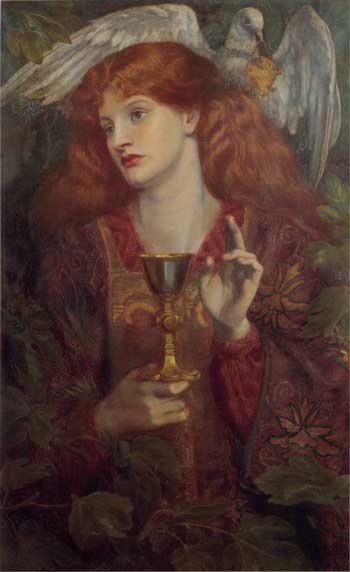Dan Brown’s best-selling novel (key word here is novel) is quite the subject and the film based upon the book will be coming to a theater near you this summer.
Roman Catholic Cardinal Tarcisio Bertone, Archbishop of Genoa, has called the novel and upcoming film “shameful and unfounded.” Cardinal Gaudencio Rosales, the Archbishop of Manila, stated that it was “blasphemous.” The Greek Orthodox Church says that “from a religious and historical point of view the film is wholly false.”
What are they talking about - The DaVinci Code, of course. It is a novel of fiction that is a murder mystery in which the Holy Grail is the gist of the story. Two people, Robert Langdon and Sophie Neveu are out to solve the mystery and learn that the Bible was not divinely inspired by god but rather politically inspired by Roman Emperor Constantine. They also learn that Jesus’ divinity was “a late-developed doctrine foisted on Christians by the Council of Nicaea.” Instead of being divine, Jesus was a human prophet who married Mary Magdalene and had children by her. The Holy Grail is actually Mary Magdalene’s ancestry (“blood line”).
The DaVinci Code is a series of ancient heresies taken from history and incorporated in the fictional material:
Arianism: A very old heresy associated with Bishop Arius of Alexandria (circa 320 AD). Christ is a creation rather than part of the Trinity of God. It was to address Arianism that the Council of Nicacea was called 325. At that Council, a statement of faith was adopted that became the Nicene Creed. The Catholic Encyclopedia explains what happened:
“All the bishops save five declared themselves ready to subscribe to this formula, convinced that it contained the ancient faith of the Apostolic Church. The opponents were soon reduced to two, Theonas of Marmarica and Secundas of Ptolemais, who were exiled and anathematized. Arius and his writings were also branded with anathema, his books were cast into the fire, and he was exiled to Illyria.”
Gnosticism: The origin of Gnosticism is pretty much a mystery because of so much of their written works being destroyed or lost because of the early Christian Church. Some historians consider them Christian heretics. Others claim it originated before Christianity and then was absorbed into the Christian faith as its doctrine was established and spread. But most agree that the gist of “gnosis” is “special knowledge” – the literal meaning of the Greek word. Numerous Gnostic Gospels were passed around in the period of the early Church, but all were rejected by the Church when it came time to create the official Biblical canon.
Both Arianism and Gnosticism reject the divinity of Christ and that is the gist of the story in the novel and the film.
The deification of Christ occurred long after his and his disciples’ death:
Ignatius of Antioch, 110 years after Christ’s crucifixion:
“For our God, Jesus Christ, was conceived by Mary in accord with God’s plan: of the seed of David, it is true, but also of the Holy Spirit.”
Melito of Sardis – circa 177 AD:
“The activities of Christ after his baptism, and especially his miracles, gave indication and assurance to the world of the deity hidden in his flesh. Being God and likewise perfect man, he gave positive indications of his two natures.”Clement of Alexandria (circa 190 AD): “The Word, then, the Christ, is the cause both of our ancient beginning – for he was in God – and of our well-being. And now this same Word has appeared as man. He alone is both God and man, and the source of all our good things.”
I guess the main problem the Church has with both the novel and the film, is that the author, Dan Brown claims it is based upon his “deep historical research.” He does make a statement that “no statement whatsoever about any of the ancient theories discussed by fictional characters” – but he also states – “that some of the theories discussed by these characters may have merit.”
Once again there are readers of Mr. Brown’s book who believe that it is “largely true.”
I am trying here to prevent anyone saying the really foolish thing that people often say about Him” ‘I’m ready to accept Jesus as a great moral teacher, but I don’t accept His claim to be God.’ That is one thing we must not say. A man who was merely a man and said the sort of thing Jesus said would not be a great moral teacher. He would either be a lunatic – on a level with the man who says he is poached egg – or else he would be the Devil of Hell. You must make your choice. Either this man was, and is, the Song of God: or else a madman or something worse. You can shut Him up for a fool, you can spit at Him and kill him as a demon or you can fall at his feet and call Him Lord and God. But let us not come with any patronizing nonsense about His being a great human teacher. He has not left that open to us. He did not intend to.


No comments:
Post a Comment